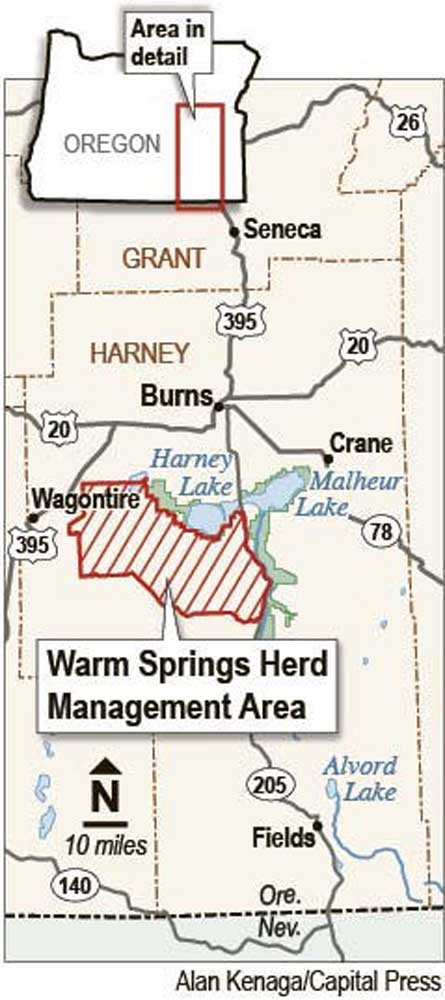Wild horse roundup completed in Southeast Oregon
Published 10:09 am Tuesday, October 30, 2018

- Wild horse sterilization blocked by judge
More than 800 wild horses were recently rounded up in southeast Oregon by the U.S. Bureau of Land Management as part of a sterilization project to control their population.
The BLM conducted the wild horse gather from Oct. 2 through Oct. 23, during which time the agency rounded up 846 horses, 41 burros and two mules, leaving roughly 20-30 horses in the Warm Springs Herd Management Area, said Tara Thissell, public affairs specialist for the agency.
“We are overpopulated on the range for sure,” Thissell said.
The agency plans to return 200 horses to the range, with the ovaries removed from half the female population and the other half being left intact as a control group, she said. A portion of the mares and stallions will be outfitted with tracking collars.
The two populations that will be returned to the range are part of the “behavioral and spatial ecology portion of the study,” which will also sterilize additional mares that will remain in captivity so the rate of medical complications can be analyzed, Thissell said.
Thissell noted the project is supported by the American Association of Equine Practitioners, which wants to see whether ovary removal from wild mares is a “viable population management tool.”
Wild horses are controversial on the range, as ranchers often blame them for causing environmental damage that’s blamed on livestock or that justifies grazing curtailments.
Before the roundup was even finished, however, the BLM’s project was challenged in federal court by the Friends of Animals, a nonprofit advocacy group based in New York that calls it an “unethical and ill-informed experiment.”
The plaintiff complains that separating the two study populations with a fence will create a “zoo-like herd management area” without first conducting sufficient analysis and public participation as required under the National Environmental Policy Act and the Wild Free-Roaming Horses and Burros Act.
Friends of Animals notes that testing conducted between 2001 and 2010 found genetic diversity in the herd had declined and claims that BLM doesn’t plan to conduct additional environmental assessments each time it conducts roundups as part of the 10-year management project contrary to NEPA.
Removing ovaries is characterized in the complaint as a “dangerous surgery” that will leave mares “highly traumatized” and will adversely affect their health over the long term.
The lawsuit seeks an injunction against the sterilization experiment and 10-year management plan for the wild horses as well as reimbursement for the plaintiff’s litigation costs.






